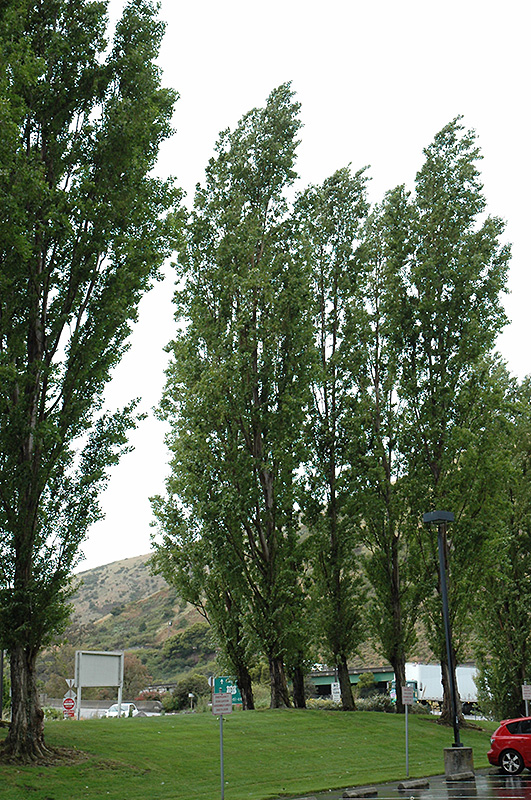Height: 60 feet
Spread: 10 feet
Sunlight:
![]()
Hardiness Zone: 3b
Description:
A popular tall and very narrow spire-like tree, used primarily as a sharp vertical accent or in a row as a very tall screen; fast growing, susceptible to disease troubles; makes a bold and formal statement in the landscape
Ornamental Features
Lombardy Poplar is primarily valued in the landscape for its rigidly columnar form. It has dark green deciduous foliage. The pointy leaves turn yellow in fall.
Landscape Attributes
Lombardy Poplar is a deciduous tree with a strong central leader and a narrowly upright and columnar growth habit. Its average texture blends into the landscape, but can be balanced by one or two finer or coarser trees or shrubs for an effective composition.
This tree will require occasional maintenance and upkeep, and usually looks its best without pruning, although it will tolerate pruning. Gardeners should be aware of the following characteristic(s) that may warrant special consideration;
- Disease
Lombardy Poplar is recommended for the following landscape applications;
- Vertical Accent
- Hedges/Screening
Planting & Growing
Lombardy Poplar will grow to be about 60 feet tall at maturity, with a spread of 10 feet. It has a low canopy with a typical clearance of 5 feet from the ground, and should not be planted underneath power lines. It grows at a fast rate, and under ideal conditions can be expected to live for 50 years or more.
This tree should only be grown in full sunlight. It is an amazingly adaptable plant, tolerating both dry conditions and even some standing water. It may require supplemental watering during periods of drought or extended heat. It is not particular as to soil type or pH. It is highly tolerant of urban pollution and will even thrive in inner city environments. This is a selected variety of a species not originally from North America.


